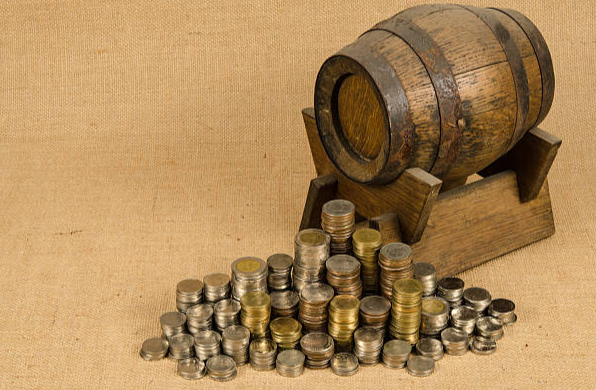Crafting Wealth: Maximizing Returns with Bourbon Barrel Investment

Introduction
Investing in bourbon barrels is an emerging trend that offers unique opportunities for wealth creation. With the increasing demand for premium spirits and the long aging process required for bourbon, this investment can yield significant returns. This guide explores the intricacies of bourbon barrel investment, providing insights into its benefits, risks, and strategies to help you maximize your returns.
Understanding Bourbon Barrel Investment
What is Bourbon Barrel Investment?
Bourbon barrel investment has emerged as a distinctive alternative investment avenue, offering investors the opportunity to capitalize on the growing popularity and scarcity of aged bourbon. The value of bourbon increases as it ages, making this a potentially lucrative investment.
How Does Bourbon Aging Work?
Bourbon must be aged in new charred oak barrels for a minimum of two years. The aging process enhances the flavor and quality of the bourbon, with longer aging periods generally resulting in a more valuable product.
Types of Bourbon Barrel Investments
- New Fill Barrels: Recently filled barrels that have not yet begun the aging process.
- Mature Barrels: Barrels that have been aging for several years and are closer to being ready for bottling.
- Bottle-Ready Barrels: Fully matured barrels that are ready to be bottled and sold.
Benefits of Bourbon Barrel Investment
High Potential Returns
As bourbon ages, its value can significantly increase, offering high potential returns on investment.
Growing Market Demand
The demand for premium and aged bourbon is on the rise, driven by both domestic and international markets.
Tangible Asset
Unlike stocks or bonds, bourbon barrels are tangible assets that you can physically own and store.
Portfolio Diversification
Investing in bourbon barrels adds a unique asset class to your investment portfolio, helping to diversify risk.
Risks of Bourbon Barrel Investment
Market Fluctuations
The value of bourbon can be affected by market trends and consumer preferences, leading to potential fluctuations in prices. As with any investment, bourbon barrel investment carries inherent risks, including market volatility and fluctuations in consumer demand.
Storage and Insurance Costs
Proper storage and insurance are essential to protect your investment, adding to the overall cost.
Time Horizon
Bourbon requires a long aging period, meaning your capital may be tied up for several years before you see returns.
Quality Variability
The quality of bourbon can vary depending on numerous factors, including the barrel, storage conditions, and distillation process.
How to Get Started with Bourbon Barrel Investment
Research and Education
Begin by researching the bourbon industry, understanding the aging process, and learning about market trends.
Choose Reputable Distilleries
Invest in barrels from reputable distilleries with a track record of producing high-quality bourbon.
Consult Experts
Work with industry experts or investment advisors who specialize in alternative investments to guide you through the process.
Determine Your Budget
Decide how much capital you are willing to invest and consider the costs associated with storage, insurance, and maintenance.
Select the Right Barrels
Choose barrels based on your investment goals, whether you prefer new fill, mature, or bottle-ready barrels.
Strategies for Maximizing Returns
Diversify Your Barrel Portfolio
Invest in a mix of new fill, mature, and bottle-ready barrels to spread risk and increase potential returns.
Monitor Market Trends
Stay informed about market trends and consumer preferences to make strategic decisions about buying and selling barrels.
Long-Term Holding
Consider holding onto barrels for extended aging periods to maximize their value.
Partnerships and Collaborations
Partner with other investors or distilleries to share resources and knowledge, potentially increasing your investment’s success.
Marketing and Sales Channels
Develop strong marketing and sales strategies to effectively sell your matured bourbon at the highest possible price.
Legal and Regulatory Considerations
Understanding Regulations
Familiarize yourself with the legal and regulatory requirements for bourbon production, storage, and sales in your region.
Licensing and Compliance
Ensure you obtain the necessary licenses and comply with all regulations to avoid legal issues.
Tax Implications
Consult with a tax advisor to understand the tax implications of bourbon barrel investment and plan accordingly.
Case Studies: Successful Bourbon Barrel Investments
Case Study 1: Early Investment in Emerging Distillery
An investor purchased new fill barrels from an emerging distillery at a low price. Over ten years, the distillery gained popularity, and the matured bourbon’s value skyrocketed, resulting in substantial returns.
Beyond passive barrel ownership, investors can explore value-added opportunities such as bottling, branding, and marketing their whiskey products.
Case Study 2: Strategic Barrel Selection
An investor diversified their portfolio by investing in both new fill and mature barrels. They sold the mature barrels after a few years for a quick profit while holding onto the new fill barrels for long-term gains.
FAQs
Is bourbon barrel investment suitable for beginners? Yes, but it requires thorough research and understanding of the market. Consulting with experts can help beginners make informed decisions.
How long should I hold onto my bourbon barrels? The ideal holding period varies, but many investors hold onto barrels for at least 4-10 years to maximize aging and value.
What are the costs associated with bourbon barrel investment? Costs include the purchase price of barrels, storage fees, insurance, and potential taxes. These should be factored into your overall investment plan.
Can I visit and inspect my bourbon barrels? Many distilleries allow investors to visit and inspect their barrels, providing transparency and a deeper connection to the investment.
What happens if the quality of the bourbon does not meet expectations? Quality variability is a risk. Investing in reputable distilleries and consulting with experts can help mitigate this risk.
Are there any tax benefits to bourbon barrel investment? There may be tax implications, both positive and negative. Consult a tax advisor to understand the specific benefits and obligations.
Conclusion
Investing in bourbon barrels can be a rewarding and profitable venture if approached with careful planning and knowledge. By understanding the benefits, risks, and strategies involved, you can make informed decisions and maximize your returns. As the market for premium bourbon continues to grow, now is an opportune time to explore this unique investment opportunity.






